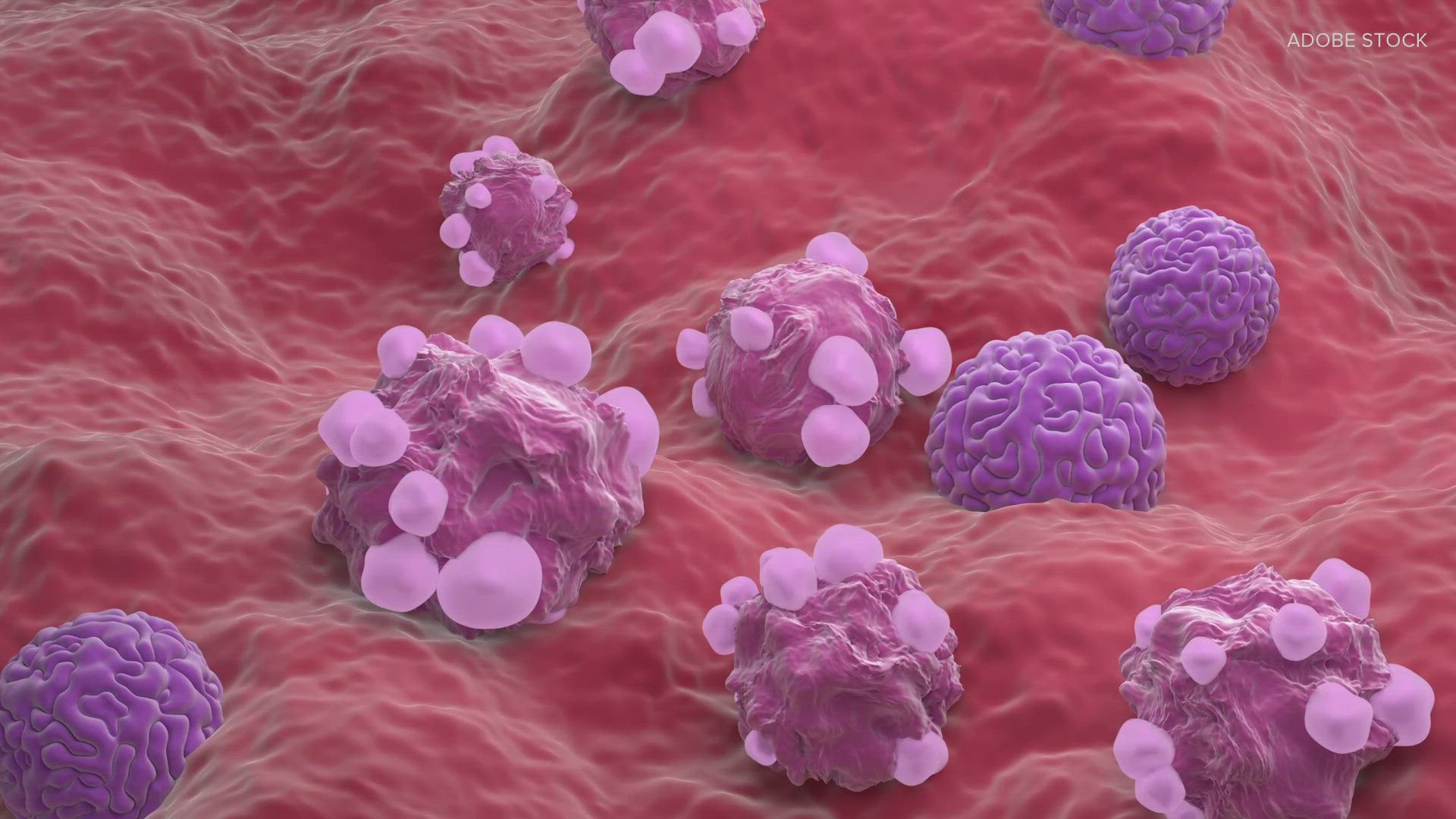SEATTLE — Medical researchers in Washington state are looking deeper into what causes ovarian cancer, thanks to new grant funding issued this year.
Ovarian cancer remains one of the leading cancers that cause death among women, according to the American Cancer Society.
While it is less common than breast cancer, which affects 1 in 8 women, 1 in 87 women are at risk of ovarian cancer.
Yet there remains a lot of unknowns on what causes it.
Doctors are eager to learn more, as many ovarian cancer cases are discovered in later stages when it is more difficult to treat. The ACS says only about 20 percent of ovarian cancers are found at an early stage.
The Rivkin Center, in a private-public partnership with the Andy Hill Cancer Research Endowment Fund, awarded $1 million in grants to researchers in Washington state for a span of two years, with the hope of learning more.
Dr. Holly Harris, an epidemiologist specializing in breast and ovarian cancer research, will specifically look into whether endometriosis is a risk factor for a certain type of ovarian cancer.
"Endometriosis is what I would call a chronic, gynecological condition," Harris said.
She said up to ten percent of women of reproductive age experience endometriosis.
It is a condition that causes symptoms similar to severe menstrual cramps, and abdominal swelling and can in some cases, cause infertility.
"It's basically when tissue that's similar to tissue that lines the uterus grows outside of it, in places it shouldn't," Harris said.
Studies have suggested endometriosis may put women at risk for ovarian cancer but Harris wants to know more.
"It's a low, absolute risk. So most people with endometriosis are not going to get ovarian cancer. But, we know very little how to identify who will have ovarian cancer, so it's really an opportunity to home-in on a group of population that's at a bit higher risk," Harris said.
Her research will explore any links between the two diseases.
"Specifically, look though whether endometriosis has different risk factors so we're just going to compare people with endometriosis to people without," she said.
Harris explained endometriosis might be linked to what's known as a rare, "clear cell" ovarian cancer.
"There's also potentially the idea that endometriosis is considered a pretty inflammatory condition, that maybe it's the environment that's created by endometriosis that then lends cells to more likely transform to cancer," Harris said.
Molly O'Connor, CEO of the Rivkin Center, hopes an answer can be gleaned from additional research.
"Ovarian cancer needs the same megaphone that breast cancer had at one point; we knew so little about breast cancer, how to identify it, how to treat it, how to help women survive it," O'Connor said.
Dr. Elizabeth Swisher, a gynecologic oncologist at UW Medicine, is also a recipient of the grant. Her research will explore genetic testing to assess hereditary ovarian cancer risk.
"Ovarian cancer is a highly fatal cancer. There really needs a lot more work done to figure out how to reduce that burden," Harris said.
Seattle researchers explore causes of ovarian cancer: HealthLink
Could a common gynecological condition among women be a risk factor for ovarian cancer? A Fred Hutch researcher receives grant funding to delve deeper.

